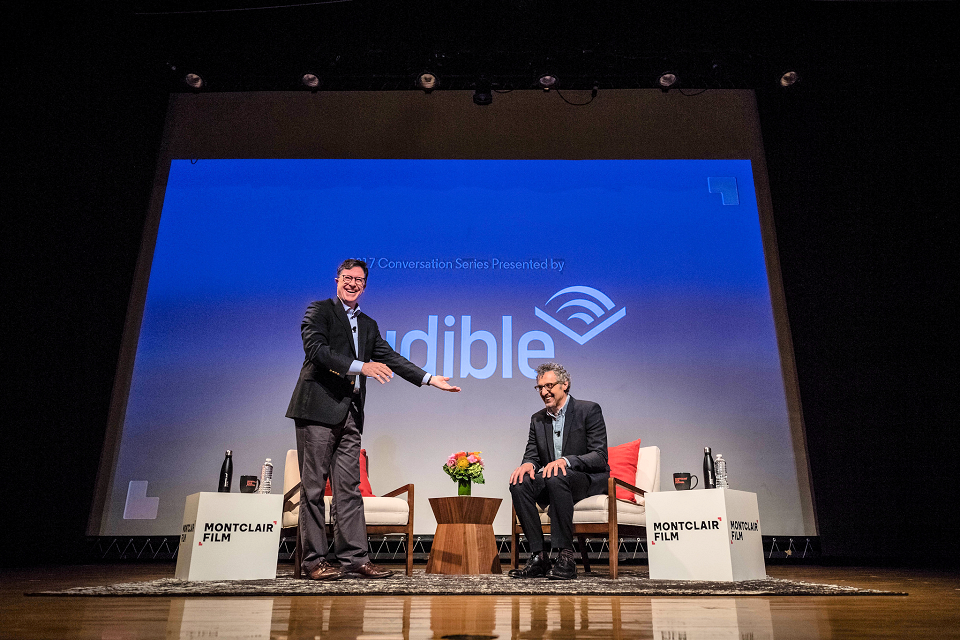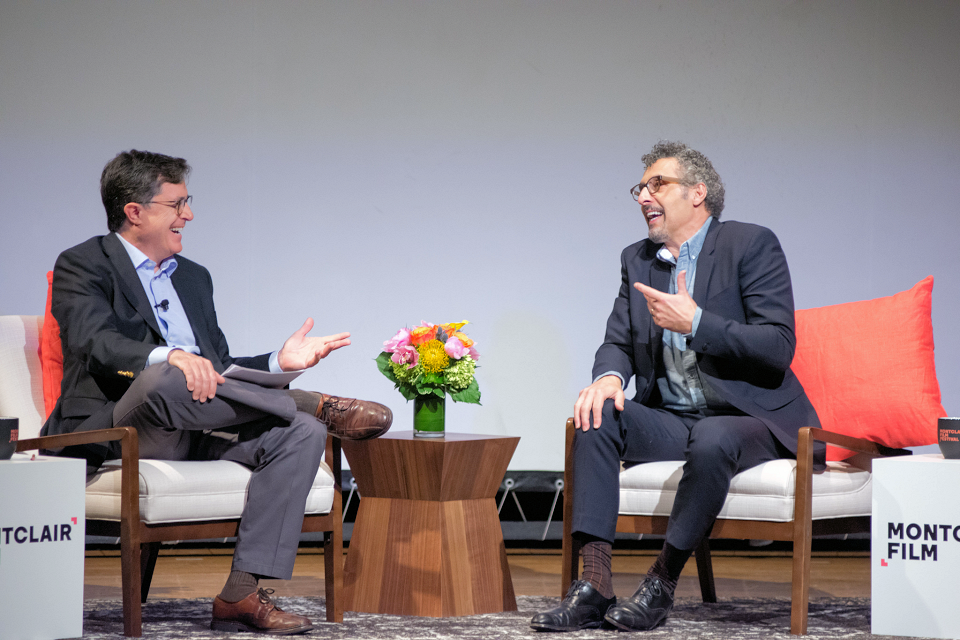News
A Lively Conversation with the Inimitable JOHN TURTURRO

Montclair Film Festival champion and Late Night host, Stephen Colbert sat down last Sunday for a lively conversation with renowned character actor John Turturro, co-presented by Audible.

Photo by Neil Grabowsky / Montclair Film
Colbert, armed as usual with his trademark easy smile and bright eyes, has the seasoned interviewer’s instinct for knowing when to simply get out of the way of his subject, and he quickly turned Turturro loose. The actor, sharply dressed and wearing rimmed spectacles, related how he’d fallen for the movie business, a blue-collar Rosedale, Queens upbringing being not one of the more obvious boosters for a Hollywood star.
He knew a prop man across the street, he’d been taken in by the black-and-white fare shown as the “Million Dollar Movie” offerings on Channel 9 during the 1960s, and he took easily to being the center of attention. “I like to tell stories and fool around,” Turturro quipped. But it was only upon later reflection that he’d realized watching his parents interact had offered a master class in character study, confiding, “It didn’t occur to me that I was in a movie.”

Photo by Cheryl Corman / Montclair Film
Turturro’s father, a builder with whom he worked summers until he was 25, was an artisan of banter, whether arguing with his wife over the merits of geographical Italian heritage–“My mother was always with a knife”–or haranguing him over the message behind a raised eyebrow. As kids, he and his brothers referred to The Honeymooners as Mommy and Daddy, as in, “Let’s watch Mommy and Daddy.”

Photo by David Hubelbank / Montclair Film
Turturro remembered his father always instructing him to grab a beer or condiment for him at dinner even if it was within reach. “As a parent, you see the usefulness of children,” Turturro offered, to which Colbert lamented, “Unfortunately, I don’t have that authority.” As his father grew ill at the end of his life, Turturro related, he would sometimes tell him, “Every once in awhile, scare me, shock me, so I know I’m alive.” Proof of life for a patriarch who taught his family to live as if they were forever at center stage, always on.
After admitting he often bases his performance on the director or producer of the film he’s working on–creating a feedback loop between helmsman and star that often evades not the just the audience but the directors themselves–Turturro described the origin story of perhaps his most famous role, Jesus Quintana in THE BIG LEBOWSKI. At a lunch with the soft-spoken father of a director friend who had just that day been released from prison, he asked him his future plans. In reply he got only shy deflection, as if to say simply being at the table was sufficient effort for one day.
Colbert then read a quote: “John Turturro may not always be the lead, but he’s the one you always remember,” much to the applause of the audience, and channeling the question of how it is Turturro manages to be so memorable. Turturro said the hope for any actor is that the search ultimately yields “the real thing,” the truth behind the moments of life that all of us experience but only a few can project in a way that is so visceral it makes the audience see itself in the character. This, coupled with his unerring diligence and preparation, allows him to embody a part where others may not.

Photo by Neil Grabowsky / Montclair Film
Shortly before time was up, by way of explanation, Turturro offered, “For you to remember, you have to give something of yourself” to a role. So it seems that each part of the master actor that is given away for a role is happily snatched back up and lodged in the memories of the audience.
Written by MFF Blogger Kevin Walter
-
Genre